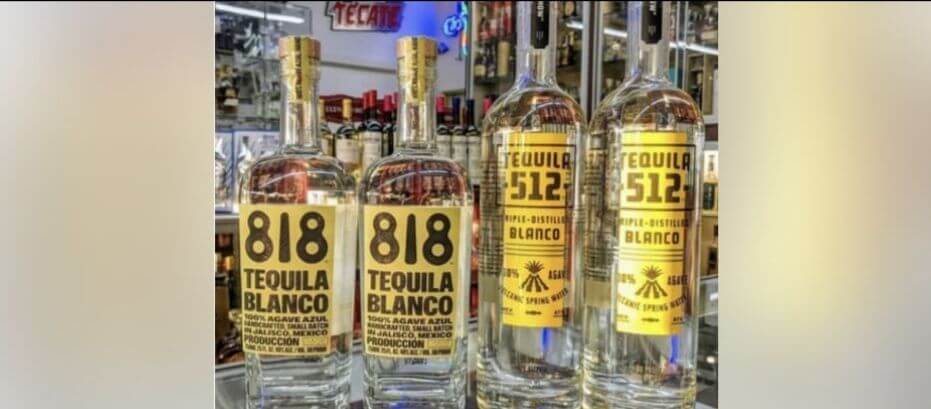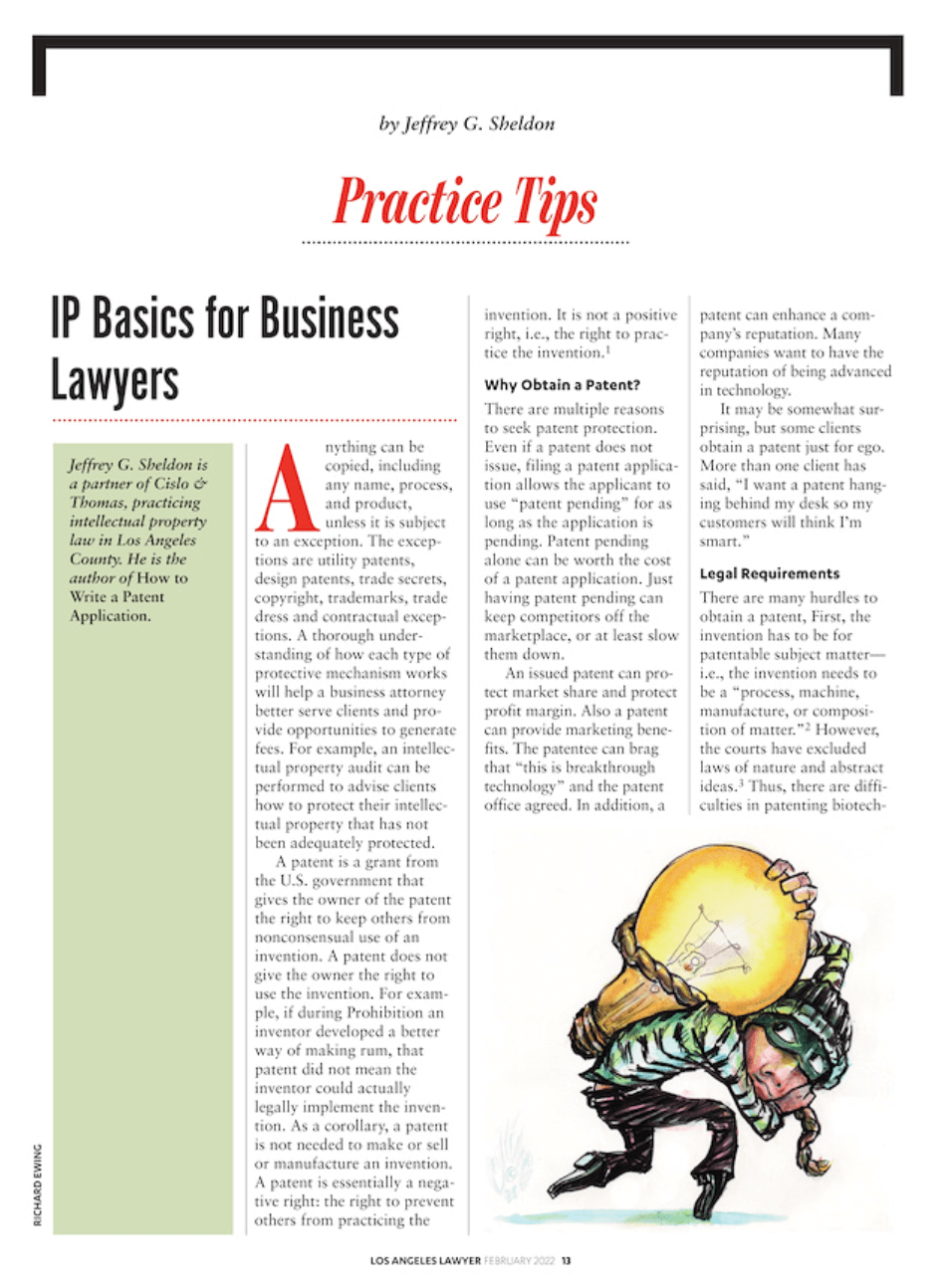Supreme Court’s Ruling in Unicolors, Inc. v. H&M Hennes Benefits Copyright Holders
Takeaway: Lack of either factual or legal knowledge can excuse an inaccuracy in a copyright registration.
In Unicolors, Inc. v. Hm Hennes, the defendant, H&M, argued that plaintiff, Unicolors, failed to satisfy the “single unit of publication” requirement for copyright registration. At the time, Unicolors filed a single copyright application seeking registration for 31 separate works. Some works were available for immediate sale to the public while others only to certain customers, leading to H&M claiming that Unicolors had knowledge that it failed to satisfy the single publication requirement. This knowledge of inaccuracy on the application should invalidate the registration.
Unicolors argued that the inadvertent mistake was a legal mistake that rendered the application inaccurate, and it did not act with knowledge that the application was inaccurate.
The Supreme Court’s decision rested on the “knowledge” requirement of the statute, which can be found satisfied by actual knowledge, circumstantial evidence of actual knowledge, or even willful blindness. The Court found that copyright law does not distinguish between a mistake of law and a mistake of fact. This means that lack of knowledge of either fact or law can excuse an inaccuracy in a registration. Finding that nothing in the statutory language suggests forgiving applicants, the Supreme Court ultimately remanded the case to the Ninth Circuit for a determination as to whether Unicolors possessed the knowledge that certain works included in the registration were confined and therefore published separately.
The U.S. Copyright Office Makes its Views Clear on AI-Created Art
Takeaway: AI-created art cannot be copyrighted, as copyrighted work must be created by a human being.
The Copyright Office has made a decision that current copyright law only offers protections to “the fruits of intellectual labor” that “are founded in the creative powers of the human mind.” For works to be copyrightable, they “must be created by a human being” and cannot be “produced by a machine or mere mechanical process” that lack creative input from a human being.
This decision came after Dr. Stephen Thaler appealed to the U.S. Copyright Office. After the Copyright Office initially denied his attempt to copyright a piece of art created by artificial intelligence, Dr. Thaler stated that the “human authorship” requirement was unconstitutional. The art piece in question, titled A Recent Entrance to Paradise, was created by an AI which Thaler calls “the Creativity Machine.”
The Copyright Office disagreed with his argument and denied Dr. Thaler’s second request to reconsider its decision.
It is worth noting that this is not a globally agreed upon opinion for intellectual property, as a judge in Australia ruled last year that AI-created inventions can qualify for patent protection.

The art piece “A Recent Entrance to Paradise”
Photo Credit: engadget.com /us-copyright-office-art-ai-creativity-machine-190722809.html
DC Comics Challenges the UK Trademark Office
Takeaway: Register all of your trademarks, and always be on the lookout for similar marks to your registered trademarks, as risk of confusion may have negative consequences to your business and brand.

DC Comics, a U.S.-based comic book company, is trying to prevent Unilever from creating a brand of cosmetics called “Wonder Mum.” DC Comics is arguing that consumers would assume the line was somehow connected to its enterprise and may otherwise cause confusion because of one of its most famous characters Wonder Woman.
DC Comics took its challenge to court after the UK Intellectual Property Office decided that its Wonder Woman trademark “has not generated sufficient goodwill” in Britain to prevent other companies, including Unilever, from registering their trademark.
Attorneys for DC Comics believe that the hearing officer committed legal errors when considering the trademark application for “Wonder Mum,” including considering the differences between the ‘Woman’ and ‘Mum’ rather than the similarities. Furthermore, DC Comics argues that the word “mum” is a subset of the word “woman” and thus too similar.
The hearing officer, however, concluded that although Wonder Woman describes a “very effective or good adult female human being,” a Wonder Mum portrays a “mainly British” woman who has brought up children.
Photo Credit: https://turbologo.com/articles/wonder-woman-logo/
Federal Circuit Raises its Standards for Admitted Prior Art in IRPs
Takeaway: Petitioners at the Patent Trial and Appeal Board will no longer be able to use applicant-admitted prior art as a basis for invalidating a patent.
In the Federal Circuit decision Qualcomm v. Apple, the court ruled against Apple deciding that applicant-admitted prior art cannot be used as “the basis of an obviousness or anticipation challenge” to a patent. Nevertheless, statutory law still dictates that the prior art required for those challenges must be other patents or printed publications.
Applicant-admitted prior art specifically refers to statements in patents along the lines of “it is well established.” More specifically, this refers to what a person with ordinary skill in the art would have known at the time of the invention.
Kendall Jenner’s 818 Tequila Brand Sued for Trademark Infringement
Takeaway: When determining branding for a product, make sure to choose a unique name and logo, as well as have an attorney conduct a trademark search, to avoid the possibility of trademark infringement.

Kendall Jenner’s 818 Tequila is being sued by the owner of Tequila 512 for trademark infringement, in addition to other claims, including false designation of origin and unfair competition. The Complaint alleges Jenner’s 818 Tequila “blatantly copied the branding” of 512 Tequila by choosing a 3-digit name referring to a prominent area code. Tequila 512 is a nod to an area code in Austin, Texas, where Tequila 512 is based, while 818 Tequila refers to a Los Angeles area code. The Complaint also claims that 818 Tequila uses the same “distinctive black lettering inside a vertical yellow rectangle” as Tequila 512’s trade dress for its bottles.
It is worth mentioning that both tequila companies use the same distillery in Jalisco, Mexico. Jenner’s 818 Tequila is distilled twice and sells for $39.99, whereas Tequila 512 is distilled three times, yet sells for only $26.99 at the same store. The owner of Tequila 512 claims that consumers may easily and incorrectly believe that Tequila 512 and 818 Tequila are related due to the similarities in name and color scheme. It is also believed that Jenner’s copying was intentional in order to trade off the existing good will of the 512 trademark.
Image Credit: foxbusiness.com /entertainment/kendall-jenner-818-tequila-sued-trademark-infringement-tequila-512
Film Producers for “To Kill a Mockingbird” Seek to Enforce Their IP Rights
Takeaway: Consult with your copyright attorney if you or your family are heirs to successfully copyrighted works in order to secure lasting protection.
The heirs of the filmmakers of the famous movie “To Kill a Mockingbird” filed a petition in Federal Court against estate of Harper Lee, the late author of the book “To Kill a Mockingbird,” to enforce a final arbitration award and settlement that gives the heirs film copyrights.
Under the settlement, the filmmakers are entitled to the film copyrights of “To Kill a Mockingbird” and its sequels in “any and all media now or hereafter known or devised throughout the universe,” including the “narrative, dialogue, incidents, descriptions, characters, storyline and plot, except for those rights reserved by the estate and LLC,” and the right to “age” the characters “backward and forward in any such derivative work.” However, the agreement acknowledges that Lee’s estate retains the copyrights to printed versions of the novel, as well as to “Go Set a Watchman.” Finally, the settlement requires Lee’s estate to make a one-time settlement payment to the producers of the film.
Counsel for the film creators have stated that their clients are satisfied with the result and that both parties were able to settle amicably.
Cislo & Thomas LLP Spotlight
Partner Jeffrey G. Sheldon, Esq. Featured in February Issue of Los Angeles Lawyer Magazine

Cislo & Thomas Partner Jeffrey G. Sheldon, Esq. has a featured article in the February 2022 issue of Los Angeles Lawyers Magazine.
The article, titled “IP Basics for Business Lawyers,” discusses the importance of intellectual property protection, breaks down the different types of intellectual property, and much more.
You can read the article HERE.
Great work, Jeffrey!



